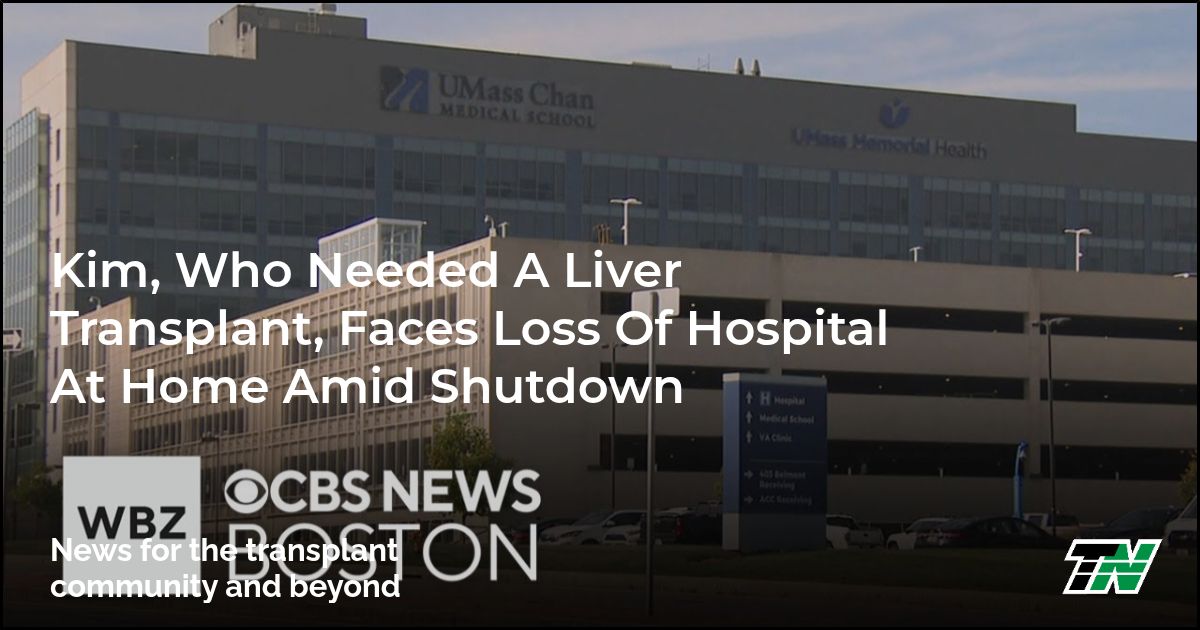USA: In central Massachusetts a tense health drama centers on a patient named Kim and a lifesaving liver transplant she received in 2023. After months in the hospital UMass Memorial Medical Center enrolled her in an innovative hospital at home program that delivered hospital-level care in her Worcester apartment. That at-home regimen included blood transfusions, IV antibiotics and wound and line checks, allowing a transplant recovery to continue beyond the hospital walls.
The hospital at home model was designed to recreate a temporary hospital environment in a patient’s living room, with clinicians administering the same invasive therapies patients would otherwise get on an inpatient unit. Clinicians report lower mortality, fewer readmissions, improved safety and higher patient satisfaction for those continuing post transplant care at home. For Kim the combination of the liver transplant and these at-home services proved pivotal to regaining strength and stability.
Now a looming federal government shutdown threatens the regulatory waiver that permits this program to operate. Program leaders say an unresolved midnight deadline could force the abrupt end of the waiver, requiring clinicians to rush vulnerable at-home patients back into hospital beds. For transplant recipients and others receiving complex therapies such as transfusions and IV antibiotics this abrupt disruption could imperil continuity of care and risk setbacks in fragile recoveries.
Beyond individual patients the potential shutdown would ripple across the Boston area with federal parks and sites closing and thousands of employees furloughed. Still, clinicians and program directors underscore that the fate of programs supporting post transplant recovery will be measured in lives and healing, and they are racing to protect the delicate pathways that let patients like Kim continue their recovery at home.

